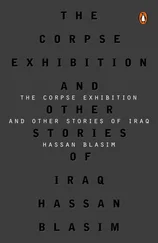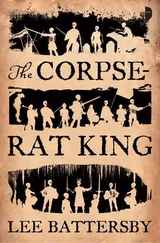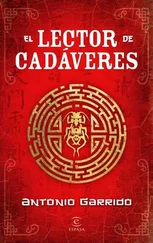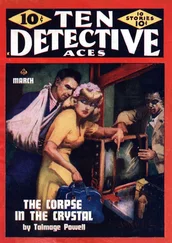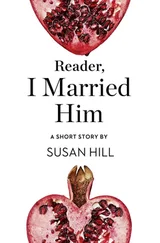“Me?” he said. “I’m fine.”
She began to pour a cup of tea.
“Oh, something I’ve been meaning to ask: How do you know Bo?”
She almost dropped the teapot.
“Sorry,” she stammered, mopping up the spilled liquid. “That happens,” she said, gesturing at her eyes to indicate her blindness. “Bo? I don’t think I know anyone by that name.”
Cí said nothing more; he was going to need every advantage he could get.
“We haven’t had a chance to talk about the other night,” said Cí.
“What about it?”
“Sleeping together. Though I suppose it’s nothing out of the ordinary for you.”
She went to slap him, but he caught her wrist.
“Let go,” she cried. “I’ll scream!”
Cí let go just as Feng walked through the door calling Cí’s name. Blue Iris cleared her throat as she moved away from the bed.
“I spilled the tea,” she explained.
Feng seemed oblivious to any tension. He simply helped his wife wipe up the tea and then held the door for her, seeing she got out all right. When she’d gone, Feng said Cí looked much improved, but he was still concerned; the trial the next day was only getting closer, and he hadn’t been able to figure out anything in terms of Cí’s defense.
It occurred to Cí to mention Bo’s and Blue Iris’s encounter, but he was sure that would only make it more likely Feng would find out that Cí had slept with his wife.
Feng put aside his own worry to reassure Cí. “Try to be calm. Think of the lake during the storm: its surface will be ruffled by the rain and wind, but there’s stillness far down in the depths.”
Cí looked in Feng’s old eyes and found courage there. Then he shut his eyes and sought deep within himself the self-possession he knew he needed.
When he opened his eyes, he told Feng he was certain about one thing: It would be a mistake to let the whole case center on Kan alone. The real enigma still lay in the other murders, or, rather, what might link them together. The eunuch, the old man with the corroded hands, the young man of whom he’d had the portrait made, the bronze maker. There must be a connection more substantial than just the perfume and the strange wounds in their torsos. But he still hadn’t found it.
Suddenly, everything around him disappeared. The room seemed to go dark. In his mind’s eye, the four corpses stepped forward in turn.
First he saw Soft Dolphin, whom he imagined bent over the salt trade accounts, the same work Cí’s father had carried out under Feng. The eunuch was making notes of consignments, surpluses, distribution, costs. At some point he came across something that didn’t add up. And after that, the accounts changed and profits began to fall.
Next, the man with the corroded hands and the tattoo. Salt corrosion. Cí imagined him with his hands thrust into a pile of the pulverized mineral. But he’d also found fragments of carbon under his nails, hadn’t he? So he must have worked with both products…mixing them together skillfully, with all the care of a Taoist alchemist.
Then the portrait man, whose wounds were the same as those of the prisoner who’d had fireworks go off in his face.
The last image was of the bronze maker, whose workshop had gone up in flames on the night he was killed. And there was that mysterious mold for a scepter. A bronze scepter…
Cí’s mind lit up.
That was it! Salt, carbon, an explosion—he saw the link! The ingredients of an unusual and dangerous compound.
His heart was pounding.
“Feng!” he said excitedly, getting up from the bed and throwing on some clothes. “The key isn’t whatever weapon the murderer used; it isn’t the perfume used to cover up the smell! The corpses weren’t disfigured only to hide their identities; it was also to hide their jobs ! It’s their jobs that hold the key!”
“Slow down, slow down,” said Feng. “Tell me what you’re thinking.”
“Gunpowder! That’s the key!”
“Gunpowder?” Feng looked quizzical. “For fireworks at New Year? What on earth could that have to do with anything?”
“How could I have missed this?” said Cí. He sat back down on the bed and started to explain everything.

“I came across a treatise named the Ujingzongyao while I was at the academy. It’s all about wounds inflicted on combatants. Do you know it?”
“Never heard of it,” said Feng.
“Ming said it probably wasn’t very well known. It was commissioned by Emperor Renzong and compiled at the Zeong Gongliang and Ding Du Universities, and it was only meant for military eyes. Now that I think of it, I remember Ming saying something about the current emperor prohibiting further editions, yet neither of us could figure out why. Anyway—”
“And it has something to do with these murders?”
“Yes! Well, maybe. I remember there was a chapter about the possible military applications of gunpowder.”
“As in…rockets?”
“No, not exactly. Rockets aren’t much more than arrows with a bit of propulsion in their tail; they can go farther than a normal arrow, but try aiming them at a target! No, this chapter talked about something far more lethal.” Cí pictured the illustrations from the Ujingzongyao . “Renzong’s artillerymen found a way of using gunpowder in bronze rather than bamboo cannons. Before, they’d only been able to shoot bits of leather, grapeshot, excrement, that kind of thing; but the bronze meant they could send up rocks, boulders even, and in that way knock down battlements and so on. At the same time, the Taoist alchemists discovered that changing the proportions of the gunpowder—upping the amount of nitrate, I think—made a much bigger and more efficient explosion.”
“OK…” said Feng.
“If I had the book here I could be more precise, but I do remember, yes, there were three types of gunpowder they used: incendiary, explosive, and propulsive, and it all depended on the proportions of sulfur, carbon, and saltpeter.”
Feng looked bemused.
“Don’t you see?” said Cí. “The scepter isn’t a scepter at all; it’s the most awful kind of weapon! It’s like a cannon, but one you can carry around!”
“ What scepter?”
“Sorry,” said Cí, and he explained to Feng about the mold from the wreckage at the bronze maker’s workshop, the positive he’d made from it, and how he’d thought, until now, that it was some kind of scepter. “Now everything makes sense. The unusual wounds on the corpses; the strange pockmarks on the face of one and on the hands of another. Some kind of hand cannon did all this!”
“It would explain a lot,” said Feng, truly stunned. “And if we can present the mold in the trial—”
“I don’t have it anymore. It was in my room, but someone came in and stole it.”
“Here? In my house?”
Cí nodded. Feng pursed his lips.
“But luckily,” said Cí, “I’ve still got the plaster positive I made. It’s at the academy.” He took the key from around his neck and handed it to Feng. “I must stay and write my defense. I hate to ask, but can you get it? It’s in Ming’s quarters. A servant named Sui knows where. I’ll write a note to Sui authorizing him to give it to you.”
Feng nodded. “I’ll go later,” he promised. As he headed out, he turned to Cí with a smile. “Try and get some rest.”
Cí let out a massive sigh. This nightmare he’d been living finally felt like it was ending.

Having written the notes for his defense as well as a note authorizing Feng to retrieve the plaster cast, Cí tried to relax. But to no avail. He couldn’t get Blue Iris out of his mind. Seeing her with Bo had sparked all kinds of questions. If the two of them were collaborating, it was very likely she had ordered the mold to be stolen and that Bo was the accomplice she’d needed for all the murders.
Читать дальше



